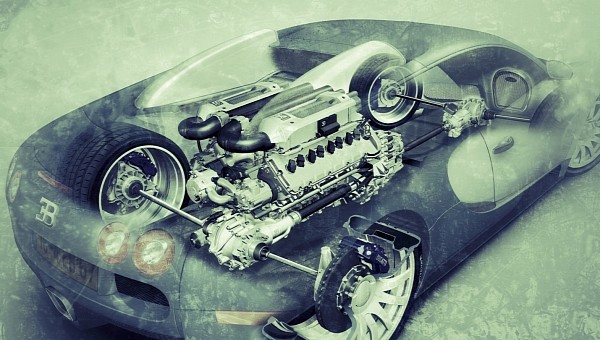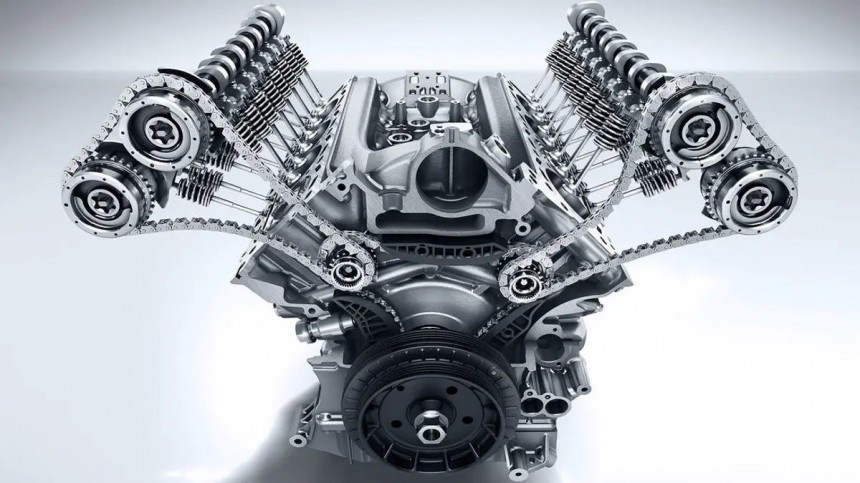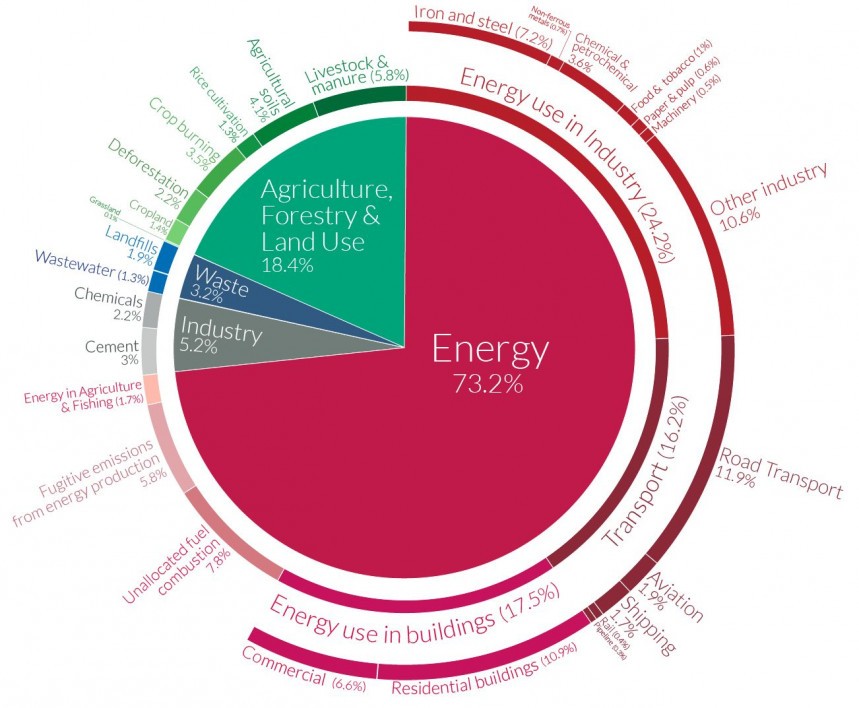Do you get it? The title, I mean. I think you do. You should, because it’s the new fast language that our brain is forced to accept. If you don’t understand what these groups of three capital letters mean… then you’re just as doomed as the internal combustion engine.
In a nutshell: internal combustion engines must die in order for us to live.
I know it’s not quite a popular idea to state such heresy on what used to be a mostly petrolhead “car website,” but, oops, it just slipped. So, I’m glad I’m not going to be burned like a witch or killed using stones like in a certain religious book’s well-known story.
We’re not living in those ages anymore. Or are we? On a digital level, we sort of are, especially on social media, where it’s nothing more than a quarrel these days. Words don’t hurt like bullets, do they?
Or maybe they do.
You shouldn’t underestimate the power of an online debate between people who usually don’t know each other, even if they can see each other’s life with some clicks on each other’s profile. Who is always "right"? The one who shouts the loudest, of course.
Written “shouting” usually means attacking and bullying the other when your arguments don’t work anymore. Or you don’t accept their arguments, either because you don’t understand them or they make you feel a certain way.
However, when you find someone who thinks the way you do, a powerful bond can manifest itself. When others agree with your ideas, it's like you've joined a club. An elitist, restricted-access club. We all yearn for such a club, where everybody is on the same page and we all know what is true and what is wrong.
I really don’t know if social media platforms were based on these simple psychological rules from the beginning. But they are today, no question about it. And, whether we like it or not, whether we get it or not, or we care about it or not, these rules have a tremendous impact on our lives.
It's really hard for me to accept the fact that a lot of people, in fact, the vast majority of people, CHOOSE to trust the idea that we can’t and shouldn’t ditch internal combustion engines in favor of battery electric vehicles or fuel cell technology.
Usually, these people also CHOOSE to listen to the so-called experts who deny or minimize the gravity of climate change, global warming, and pollution effects. Furthermore, these people deliberately CHOOSE not to care about the future in the name of “Carpe diem!” consumerism propaganda.
But I get it. It’s like the famous choice between the red pill and the blue pill. The red pill is showing you the truth, but you can’t go back to your life – it’s the symbol of total change. The blue pill is taking you back to your comfort zone and your easy-to-accept convictions.
Unfortunately, this is not the “Matrix.”
This is real life, and real choices have real consequences. It may sound harsh or inappropriate, but I’ll take my chances with a hypothetical situation. Imagine two hermetically sealed garages. The first has an ICE car in it, running on gasoline or diesel. The other garage has an electric car in it, or a fuel cell one, powered by hydrogen.
Now, you must CHOOSE what garage you want to be in. Ok, remember, once you get inside it, the door is closing, and it’s sealed. Nothing from outside can come in, nothing from inside can come out. So, make your choice. Now.
Ok, you are now inside the garage, the door is closing, and the garage is air-tight sealed. Now I start the engine from a remote control, and you cannot do anything about it. You cannot stop the engine.
What garage did you choose?
If it was the second one, with a BEV or FCEV in it, you are safe. Electric cars running on electricity and fuel cell cars running on hydrogen don’t have pipelines and don’t spew pollutants (Duh!).
If you chose the first garage, it won't take long until you die of asphyxiation. The internal combustion engine is using the air you breathe to burn its fuel mixture, and the exhaust is spewing pollutants like carbon monoxide, fine particles, or nitrogen oxides.
These pollutants are simply poison for your lungs. It’s biology. There’s nothing you can do to change the outcome. If you choose the internal combustion engine, sooner or later, it will suffocate you. And you know it.
This hypothetical situation is just a metaphor for the real world.
Even if the Earth is not hermetically sealed, the pollutants that come from burning fossil fuels don’t go up in the air and then into space. They don’t uniformly distribute vertically in the atmosphere. They stay close to the ground, in the thin “air blanket,” where people live alongside animals and plants.
And they mix with the 78 percent nitrogen and 21 percent oxygen that our breathable air is made up of. Changing this ratio impacts our bodies and also the organism of the animals and plants we eat. And not for the better.
As I like to tell children, coal is dinosaur poo, oil is dinosaur pee, and natural gas… well, of course, it’s a dinosaur being gassy. It’s not entirely accurate from a scientifical point of view, but it’s all right for kids to understand that fossil fuels are not quite the "real deal."
We've been burning this stuff for hundreds of years, but in the last 50 years or so, we simply crossed a line. Statistics focus mainly on CO2 emissions because it’s already scientifically proven – and even Big Oil agrees on this! – that it’s the main driver of global warming and beyond the '2 degrees scenario,' a collapse of our civilization becomes likely.
Official data shows that in the ‘60s, anthropogenic CO2 emissions passed the 10 billion metric tons/year mark. Two decades later, in the early ‘80s, they passed the 20 billion mark, and twenty years later, the 30 billion mark was also checked.
By 2025, it is expected we’ll pass the 40 billion mark.
Keep in mind that in the real world, the volume of these emissions is higher. And also, CO2 accounts for about 75% of all man-made greenhouse gas emissions. Each day, human activity is accountable for about 150 million tons of harmful emissions released into the atmosphere.
Almost three-quarters – that is 110 million tons a day – come from using fossil fuels to produce the energy we need for electricity, heat, and transport. The latter is accountable for about 16%, while road transport’s share is 12%. In the big picture, the internal combustion engine doesn’t seem so guilty, does it?
It’s a trick question, I admit.
Because cars, trucks, buses, tractors, or motorcycles powered by ICEs are mainly used in the urban areas where we live and work. Basically, they spew their pollutants almost directly into our lungs. Living in a city today is like staying in one of those two garages, but the door is not closed. Yet.
So, more than half – or even more than two-thirds in many cities – of pollutants come from internal combustion engines. There’s no wonder the American Lung Association is warning that almost 150 million Americans live with polluted air, placing their health and lives at risk.
Poor air quality is costing the U.S. more than $600 billion in damages every year, while government agencies spend more than $60 billion every year to reduce air pollution. This is double the spending on energy and climate change in the Inflation Reduction Act.
There are the facts. Cold numbers. Undeniable statistics.
They all show that internal combustion engines are a big part of the grim picture. And I didn’t even mention the technical drawbacks, in relation to poor efficiency and very limited improvement potential. This is a huge topic, BTW.
So then, what is your CHOICE regarding the internal combustion engine? Can you really still argue in their favor?
I know it’s not quite a popular idea to state such heresy on what used to be a mostly petrolhead “car website,” but, oops, it just slipped. So, I’m glad I’m not going to be burned like a witch or killed using stones like in a certain religious book’s well-known story.
We’re not living in those ages anymore. Or are we? On a digital level, we sort of are, especially on social media, where it’s nothing more than a quarrel these days. Words don’t hurt like bullets, do they?
Or maybe they do.
You shouldn’t underestimate the power of an online debate between people who usually don’t know each other, even if they can see each other’s life with some clicks on each other’s profile. Who is always "right"? The one who shouts the loudest, of course.
Written “shouting” usually means attacking and bullying the other when your arguments don’t work anymore. Or you don’t accept their arguments, either because you don’t understand them or they make you feel a certain way.
However, when you find someone who thinks the way you do, a powerful bond can manifest itself. When others agree with your ideas, it's like you've joined a club. An elitist, restricted-access club. We all yearn for such a club, where everybody is on the same page and we all know what is true and what is wrong.
I really don’t know if social media platforms were based on these simple psychological rules from the beginning. But they are today, no question about it. And, whether we like it or not, whether we get it or not, or we care about it or not, these rules have a tremendous impact on our lives.
Usually, these people also CHOOSE to listen to the so-called experts who deny or minimize the gravity of climate change, global warming, and pollution effects. Furthermore, these people deliberately CHOOSE not to care about the future in the name of “Carpe diem!” consumerism propaganda.
But I get it. It’s like the famous choice between the red pill and the blue pill. The red pill is showing you the truth, but you can’t go back to your life – it’s the symbol of total change. The blue pill is taking you back to your comfort zone and your easy-to-accept convictions.
Unfortunately, this is not the “Matrix.”
This is real life, and real choices have real consequences. It may sound harsh or inappropriate, but I’ll take my chances with a hypothetical situation. Imagine two hermetically sealed garages. The first has an ICE car in it, running on gasoline or diesel. The other garage has an electric car in it, or a fuel cell one, powered by hydrogen.
Now, you must CHOOSE what garage you want to be in. Ok, remember, once you get inside it, the door is closing, and it’s sealed. Nothing from outside can come in, nothing from inside can come out. So, make your choice. Now.
Ok, you are now inside the garage, the door is closing, and the garage is air-tight sealed. Now I start the engine from a remote control, and you cannot do anything about it. You cannot stop the engine.
If it was the second one, with a BEV or FCEV in it, you are safe. Electric cars running on electricity and fuel cell cars running on hydrogen don’t have pipelines and don’t spew pollutants (Duh!).
If you chose the first garage, it won't take long until you die of asphyxiation. The internal combustion engine is using the air you breathe to burn its fuel mixture, and the exhaust is spewing pollutants like carbon monoxide, fine particles, or nitrogen oxides.
These pollutants are simply poison for your lungs. It’s biology. There’s nothing you can do to change the outcome. If you choose the internal combustion engine, sooner or later, it will suffocate you. And you know it.
This hypothetical situation is just a metaphor for the real world.
Even if the Earth is not hermetically sealed, the pollutants that come from burning fossil fuels don’t go up in the air and then into space. They don’t uniformly distribute vertically in the atmosphere. They stay close to the ground, in the thin “air blanket,” where people live alongside animals and plants.
And they mix with the 78 percent nitrogen and 21 percent oxygen that our breathable air is made up of. Changing this ratio impacts our bodies and also the organism of the animals and plants we eat. And not for the better.
As I like to tell children, coal is dinosaur poo, oil is dinosaur pee, and natural gas… well, of course, it’s a dinosaur being gassy. It’s not entirely accurate from a scientifical point of view, but it’s all right for kids to understand that fossil fuels are not quite the "real deal."
We've been burning this stuff for hundreds of years, but in the last 50 years or so, we simply crossed a line. Statistics focus mainly on CO2 emissions because it’s already scientifically proven – and even Big Oil agrees on this! – that it’s the main driver of global warming and beyond the '2 degrees scenario,' a collapse of our civilization becomes likely.
Official data shows that in the ‘60s, anthropogenic CO2 emissions passed the 10 billion metric tons/year mark. Two decades later, in the early ‘80s, they passed the 20 billion mark, and twenty years later, the 30 billion mark was also checked.
By 2025, it is expected we’ll pass the 40 billion mark.
Almost three-quarters – that is 110 million tons a day – come from using fossil fuels to produce the energy we need for electricity, heat, and transport. The latter is accountable for about 16%, while road transport’s share is 12%. In the big picture, the internal combustion engine doesn’t seem so guilty, does it?
It’s a trick question, I admit.
Because cars, trucks, buses, tractors, or motorcycles powered by ICEs are mainly used in the urban areas where we live and work. Basically, they spew their pollutants almost directly into our lungs. Living in a city today is like staying in one of those two garages, but the door is not closed. Yet.
So, more than half – or even more than two-thirds in many cities – of pollutants come from internal combustion engines. There’s no wonder the American Lung Association is warning that almost 150 million Americans live with polluted air, placing their health and lives at risk.
Poor air quality is costing the U.S. more than $600 billion in damages every year, while government agencies spend more than $60 billion every year to reduce air pollution. This is double the spending on energy and climate change in the Inflation Reduction Act.
There are the facts. Cold numbers. Undeniable statistics.
They all show that internal combustion engines are a big part of the grim picture. And I didn’t even mention the technical drawbacks, in relation to poor efficiency and very limited improvement potential. This is a huge topic, BTW.
So then, what is your CHOICE regarding the internal combustion engine? Can you really still argue in their favor?








